Durable Concrete Solutions for Every Need
Concrete is the backbone of modern construction, providing strength, durability, and versatility for a wide range of applications. From sturdy foundations to decorative finishes, understanding the properties and uses of concrete is essential for any building project. Our comprehensive guide explores the key aspects of concrete, offering valuable insights for both professionals and homeowners.
The Strength of Concrete: A Lasting Foundation
Concrete’s exceptional compressive strength makes it an ideal material for foundations, walls, and structural supports. Its ability to withstand heavy loads ensures the stability and longevity of buildings and infrastructure. Proper mixing, pouring, and curing techniques are crucial to achieving the desired strength and preventing cracks or other structural issues. Choosing the right concrete mix for your specific project is vital to ensuring its long-term performance and safety.
Versatile Applications: Concrete Beyond the Basics
Beyond its structural uses, concrete offers a wide range of aesthetic possibilities. Stamped concrete can mimic the look of brick, stone, or tile, adding visual interest to patios, walkways, and driveways. Polished concrete provides a sleek, modern look for interior floors, while decorative concrete overlays can transform existing surfaces with unique colors and textures. The versatility of concrete allows for endless design possibilities, making it a popular choice for both residential and commercial projects.
Concrete Maintenance: Ensuring Longevity
While concrete is inherently durable, proper maintenance is essential to preserving its appearance and structural integrity. Regular cleaning helps remove dirt, stains, and debris, preventing them from penetrating the surface and causing damage. Applying a sealant protects concrete from water, chemicals, and UV rays, extending its lifespan and preventing costly repairs. Addressing cracks and other minor issues promptly can prevent them from escalating into more serious problems.
Types of Concrete and Their Uses
- Reinforced Concrete: Integrates steel reinforcement for enhanced tensile strength, ideal for high-stress applications like bridges and high-rise buildings.
- Prestressed Concrete: Uses pre-tensioned steel cables to increase load-bearing capacity, commonly used in beams and slabs.
- Lightweight Concrete: Incorporates lightweight aggregates to reduce density, suitable for reducing structural load in multi-story buildings.
- High-Strength Concrete: Formulated for exceptional compressive strength, used in specialized applications requiring high performance.
Choosing the Right Concrete Contractor
Selecting a qualified concrete contractor is crucial for a successful project. Look for contractors with a proven track record, proper licensing and insurance, and a commitment to quality workmanship. Obtain multiple bids and carefully review each proposal, paying attention to the scope of work, materials used, and warranty offered. A reputable contractor will provide clear communication, adhere to industry best practices, and ensure your project is completed to your satisfaction.
The Future of Concrete: Innovation and Sustainability
The concrete industry is constantly evolving, with ongoing research focused on developing more sustainable and innovative materials. Self-healing concrete, which can automatically repair cracks, is one promising development. The use of recycled aggregates and supplementary cementitious materials reduces the environmental impact of concrete production. As technology advances, concrete will continue to play a vital role in shaping the built environment, providing durable, resilient, and sustainable solutions for generations to come.
Services
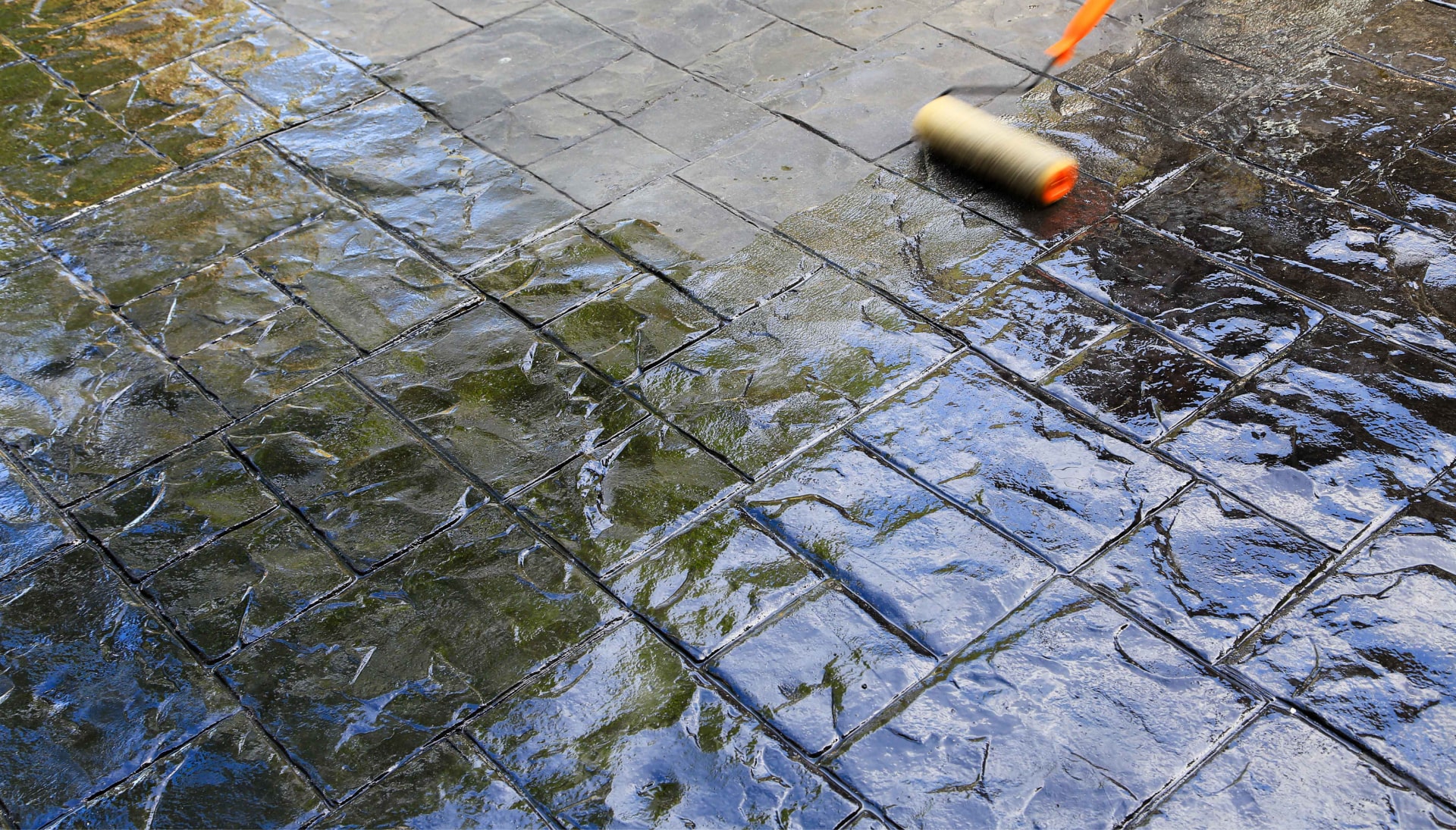
Concrete Patios in Los Angeles
Improve the visual appeal of your commercial or residential outdoor space with a beautiful concrete patio designed by our partners.
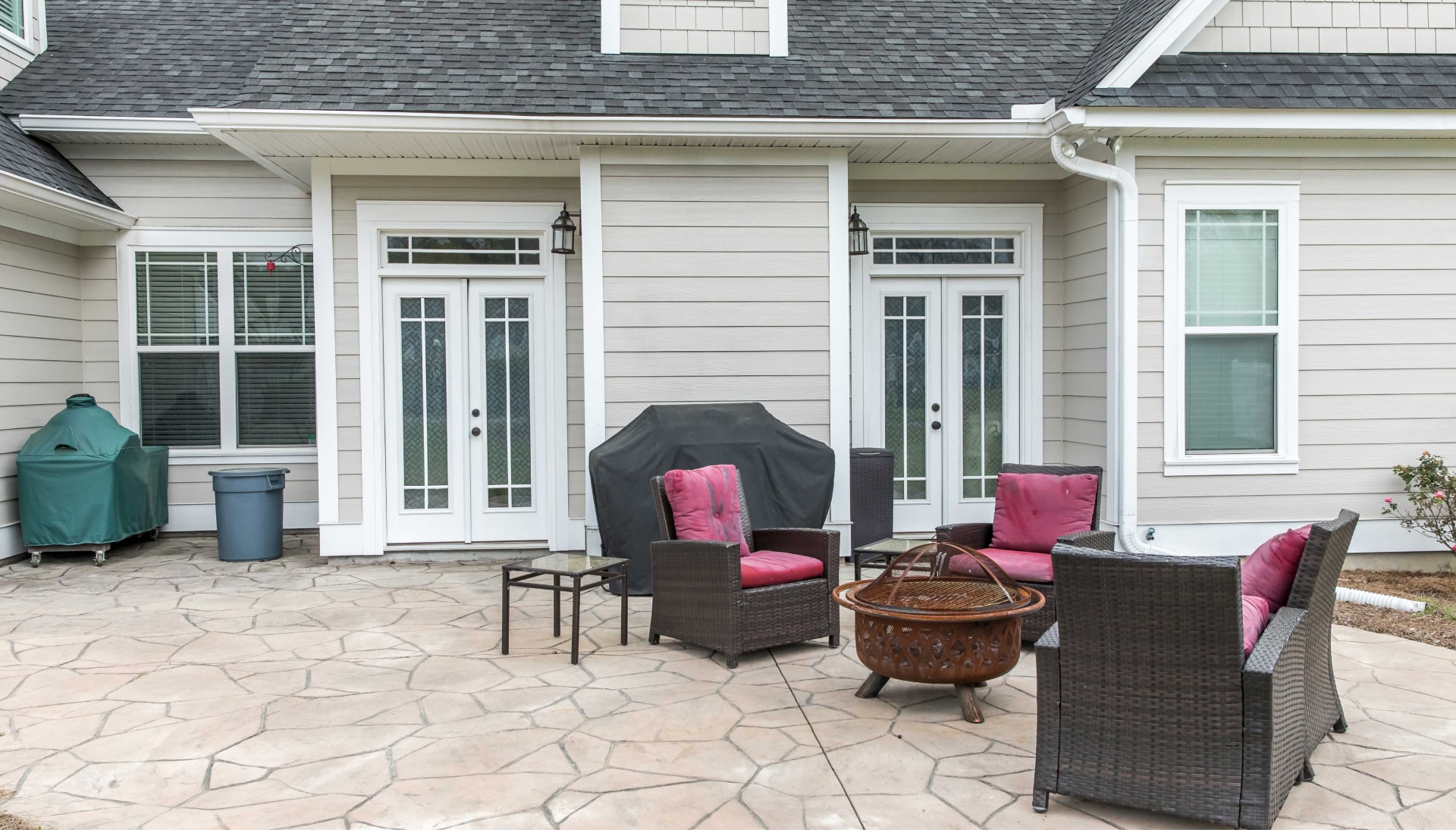
Beautiful Stamped Concrete of Los Angeles
Go with the standard concrete look or get creative with one of the many gorgeous designs in decorative concrete that Los Angeles, California locals are loving.

Foundation Repair in Los Angeles, California
No concrete repair project is too big or too small for us. We’ve got you covered whether you need concrete driveway repair, concrete foundation repair, or any other kind of concrete repair in Los Angeles.
Why choose Los Angeles Window Solutions for your Los Angeles concrete needs
Durable and Versatile: Exploring the World of Concrete Solutions
Concrete is more than just a building material; it’s the foundation of our modern world. From towering skyscrapers to humble sidewalks, concrete provides the strength, durability, and versatility needed to create lasting structures. Understanding the properties and applications of concrete is essential for anyone involved in construction, landscaping, or even home improvement projects. Let’s delve into the world of concrete and discover the possibilities it offers.
The Enduring Strength of Concrete
One of the primary reasons concrete is so widely used is its exceptional strength. Concrete’s ability to withstand compressive forces makes it ideal for load-bearing applications. This strength comes from the combination of cement, water, and aggregates, which form a solid, rock-like material when cured. Different concrete mixes can be designed to achieve specific strength requirements, ensuring the structure can handle the intended loads safely and effectively.
- High compressive strength for load-bearing structures
- Customizable mixes to meet specific project needs
- Long-lasting durability reduces maintenance costs
Versatility in Design and Application
Beyond its strength, concrete is incredibly versatile. It can be molded into virtually any shape, making it suitable for a wide range of applications. From intricate architectural designs to simple paving slabs, concrete can be adapted to meet diverse aesthetic and functional requirements. This versatility is further enhanced by various finishing techniques, such as staining, stamping, and polishing, which can transform the appearance of concrete to match any design vision.
Common Concrete Applications:
- Foundations: Providing a stable base for buildings.
- Driveways and Sidewalks: Creating durable and accessible pathways.
- Patios and Decks: Extending outdoor living spaces.
- Walls and Retaining Structures: Offering structural support and aesthetic appeal.
Choosing the Right Concrete Mix
Selecting the appropriate concrete mix is crucial for the success of any project. Different mixes are designed for specific purposes and environmental conditions. Factors to consider include the required strength, the exposure to moisture and chemicals, and the desired workability. Consulting with a concrete supplier or engineer can help ensure you choose the right mix for your needs.
Some common types of concrete mixes include:
- Standard Mix: Suitable for general construction purposes.
- High-Strength Mix: Designed for applications requiring exceptional load-bearing capacity.
- Quick-Setting Mix: Ideal for repairs and projects with time constraints.
Maintaining Concrete for Longevity
While concrete is known for its durability, proper maintenance is essential to ensure its longevity. Regular cleaning and sealing can help protect concrete from stains, cracks, and other forms of damage. Addressing any issues promptly can prevent them from escalating into more significant problems. With proper care, concrete structures can last for decades, providing reliable service and enduring value.
Here are some maintenance tips:
- Clean regularly with mild soap and water.
- Apply a sealant to protect against stains and moisture.
- Repair cracks and chips promptly.
- Avoid using de-icing salts in cold climates to prevent damage.
The Future of Concrete
As technology advances, so does the world of concrete. Researchers are constantly developing new and innovative concrete mixes that are stronger, more durable, and more environmentally friendly. Self-healing concrete, which can automatically repair cracks, and pervious concrete, which allows water to drain through, are just a few examples of the exciting possibilities on the horizon. As we look to the future, concrete will continue to play a vital role in shaping the world around us.
In conclusion, concrete is a versatile and indispensable material with a wide range of applications. Its strength, durability, and adaptability make it an ideal choice for construction, landscaping, and various other projects. By understanding the properties of concrete and following best practices for selection, installation, and maintenance, you can ensure that your concrete structures provide lasting value and contribute to a sustainable future.
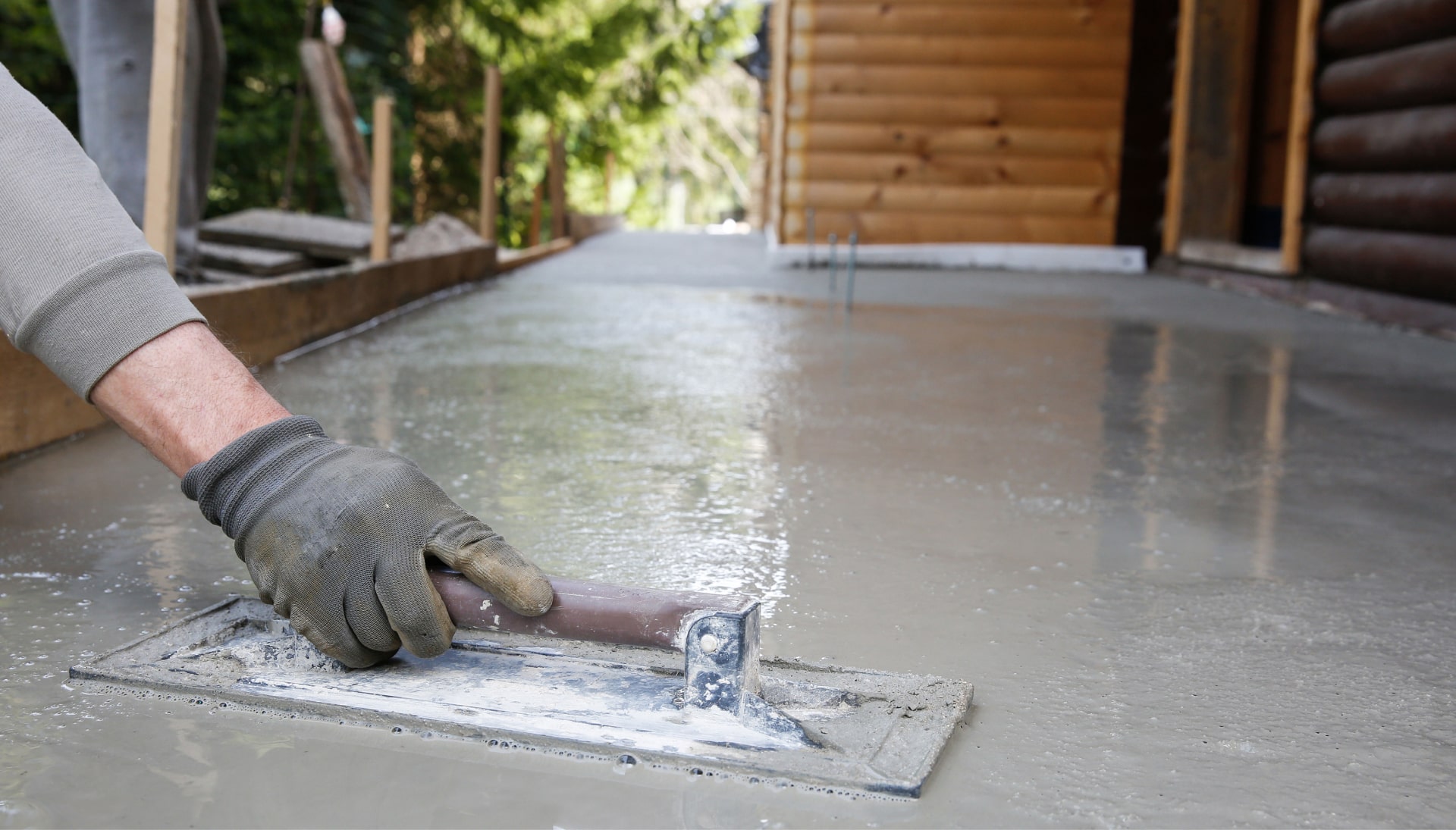
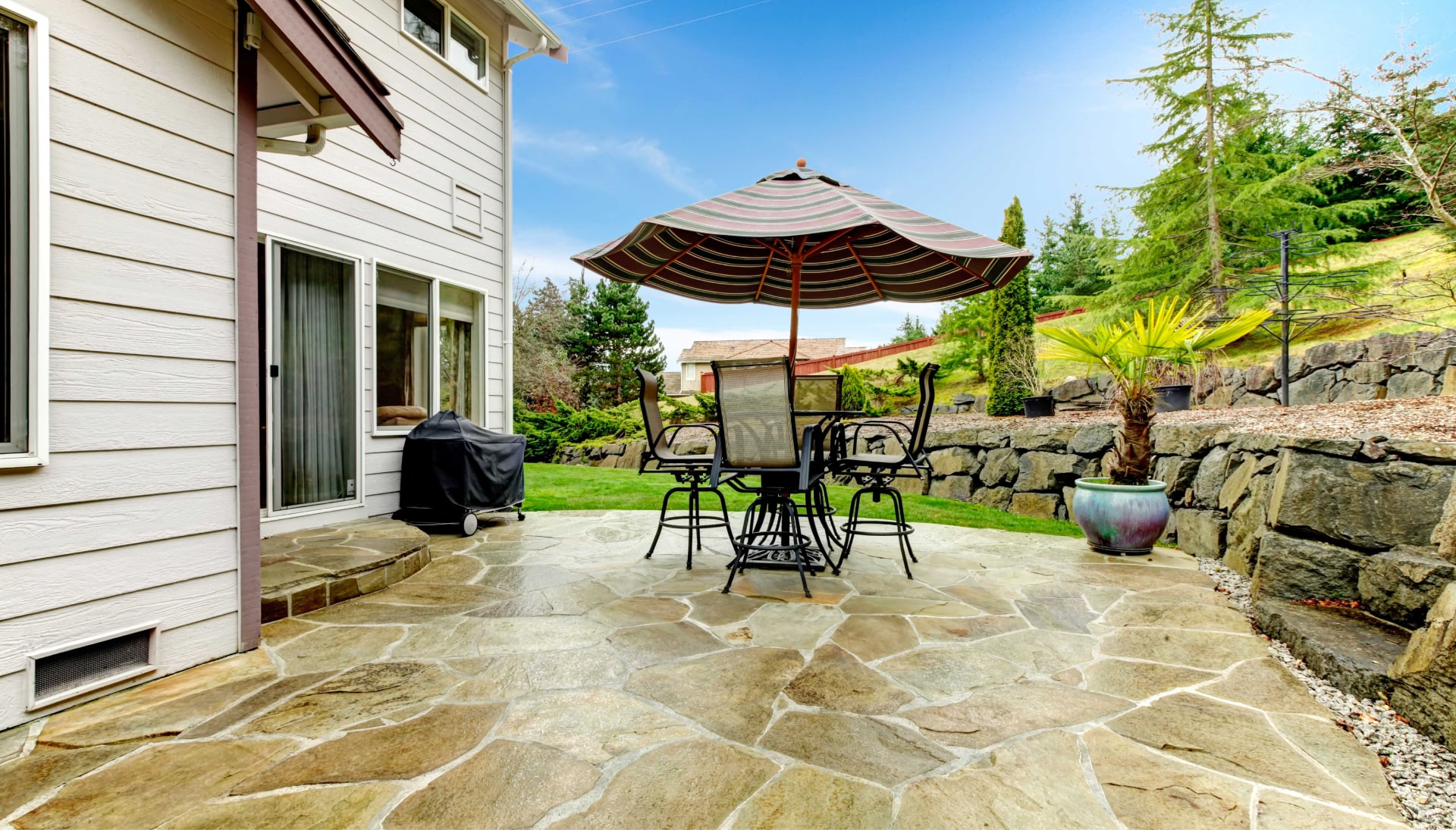
Professional Los Angeles Concrete Patios
Transform Your Space with Premium Concrete Solutions
Concrete is the backbone of modern construction, offering unmatched durability and versatility. Whether you’re envisioning a sleek, minimalist design or a robust foundation for your next project, understanding the potential of concrete is key. We provide comprehensive concrete solutions tailored to meet a wide range of needs, from residential enhancements to large-scale commercial developments.
Why Choose Concrete?
Concrete’s popularity stems from its inherent advantages. Its strength ensures longevity, capable of withstanding harsh weather conditions and heavy loads. Its versatility allows for creative applications, from decorative concrete finishes to structural components. Choosing concrete translates to lasting value and reduced maintenance costs over time.
- Durability: Concrete structures stand the test of time, resisting wear and tear for decades.
- Versatility: From foundations to countertops, concrete can be molded and finished to suit any design aesthetic.
- Cost-Effectiveness: While the initial investment may seem comparable to other materials, concrete’s long lifespan and minimal upkeep provide significant cost savings.
- Sustainability: Concrete can be made using recycled materials, contributing to environmentally friendly construction practices.
Our Concrete Services
We offer a full spectrum of concrete services, ensuring that every aspect of your project is handled with expertise and precision. Our team of experienced professionals is dedicated to delivering superior results that exceed expectations.
Concrete Foundations
A strong foundation is paramount for any structure. We specialize in pouring and reinforcing concrete foundations that provide a stable and reliable base for buildings of all sizes. Our foundations are engineered to meet local building codes and withstand specific soil conditions.
Decorative Concrete
Transform ordinary surfaces into stunning features with our decorative concrete options. Stamped concrete, stained concrete, and polished concrete are just a few of the techniques we use to enhance the visual appeal of patios, walkways, and interior floors. Explore the possibilities and create a unique look that reflects your personal style.
Concrete Driveways and Walkways
Enhance your home’s curb appeal with a professionally installed concrete driveway or walkway. We offer a variety of finishes and patterns to complement your landscape and create a welcoming entrance. Our driveways and walkways are designed to withstand heavy traffic and provide a safe, durable surface for years to come.
Concrete Repairs and Restoration
Extend the life of your existing concrete structures with our comprehensive repair and restoration services. From patching cracks to resurfacing deteriorated surfaces, we can restore the integrity and appearance of your concrete, preventing further damage and saving you money on costly replacements.
The Concrete Process: From Concept to Completion
We believe in a collaborative approach, working closely with our clients to ensure that their vision is realized. Our process is transparent and efficient, keeping you informed every step of the way.
- Consultation: We begin with a thorough consultation to understand your project goals and requirements.
- Design and Planning: Our team develops a detailed plan, incorporating your design preferences and technical specifications.
- Preparation: We meticulously prepare the site, ensuring proper grading, formwork, and reinforcement.
- Pouring and Finishing: Our skilled technicians expertly pour and finish the concrete, paying close attention to detail.
- Curing: We carefully cure the concrete to maximize its strength and durability.
- Inspection: We conduct a final inspection to ensure that the project meets our high standards of quality.
Our Commitment to Quality
Quality is at the heart of everything we do. We use only the highest-grade concrete mixes and employ industry-best practices to ensure that our projects are built to last. Our commitment to excellence has earned us a reputation for reliability and customer satisfaction.
Ready to experience the difference that quality concrete can make? Contact us today to discuss your project and receive a free estimate. Let us help you transform your space with durable, versatile, and beautiful concrete solutions.
Why Choose Concrete for Your Next Project?
Concrete is more than just a building material; it’s the foundation of modern infrastructure. From towering skyscrapers to the sidewalks we walk on, concrete’s versatility, durability, and cost-effectiveness make it an ideal choice for a wide range of construction projects.
The Enduring Strength of Concrete
One of the primary reasons concrete remains a preferred material is its exceptional strength. Concrete structures can withstand immense pressure and environmental stressors, ensuring longevity and safety. Whether you’re constructing a commercial building or a residential home, concrete provides a solid, reliable base.
- High compressive strength
- Resistance to weathering and erosion
- Ability to support heavy loads
Versatility in Design and Application
Concrete’s adaptability extends beyond its physical properties. It can be molded into virtually any shape, allowing for creative and customized designs. Architects and builders can leverage concrete’s flexibility to achieve unique aesthetic visions while maintaining structural integrity.
- Suitable for various applications, from foundations to decorative elements
- Can be colored, textured, and stamped for aesthetic appeal
- Supports innovative architectural designs
Cost-Effectiveness and Sustainability
In addition to its strength and versatility, concrete offers significant cost advantages. Its readily available raw materials and efficient production processes make it an economical choice compared to other building materials. Furthermore, concrete’s durability reduces long-term maintenance costs, providing lasting value.
Concrete can also contribute to sustainable construction practices. It can be produced using recycled materials, reducing its environmental impact. Concrete’s thermal mass properties also help regulate building temperatures, decreasing energy consumption for heating and cooling.
- Lower initial material costs
- Reduced maintenance expenses
- Potential for sustainable practices
Concrete Applications: From Residential to Commercial
Concrete’s wide-ranging applications make it suitable for diverse construction needs. For residential projects, concrete is commonly used for foundations, driveways, and patios. In commercial construction, it forms the structural framework for buildings, parking garages, and bridges.
Residential Uses
- Foundations: Providing a stable base for homes
- Driveways and Walkways: Durable and weather-resistant surfaces
- Patios and Decks: Creating outdoor living spaces
Commercial and Infrastructure Uses
- Building Structures: Ensuring strength and stability for commercial buildings
- Bridges and Highways: Supporting heavy traffic loads
- Parking Garages: Offering durable and safe parking solutions
Why Choose Concrete?
Choosing concrete for your construction project means investing in a material that offers unmatched strength, versatility, and cost-effectiveness. Its ability to withstand environmental stressors, adapt to various designs, and contribute to sustainability makes it a smart choice for any building endeavor. Whether you’re a homeowner, contractor, or architect, concrete provides the reliable foundation you need to bring your vision to life. By understanding the material’s core benefits and diverse applications, you can make informed decisions that lead to successful and long-lasting construction outcomes.
Concrete represents a commitment to quality, durability, and sustainable building practices. When planning your next project, consider the numerous advantages concrete offers and build with confidence.
Concrete driveway and foundation services for your Los Angeles property
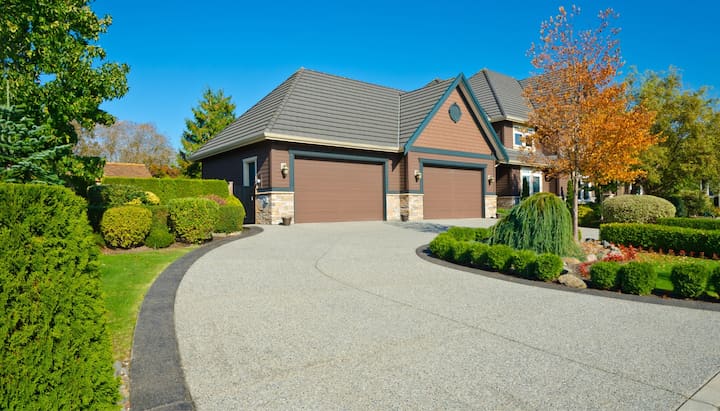
Discover the Enduring Strength of Concrete Solutions
Concrete is more than just a building material; it’s the foundation upon which our modern world is built. From towering skyscrapers to essential infrastructure, concrete provides unparalleled strength, durability, and versatility. Explore the myriad ways concrete is shaping our communities and discover how its unique properties can benefit your next project.
The Versatility of Concrete: A Material for Every Need
One of concrete’s greatest strengths lies in its adaptability. It can be molded into virtually any shape, making it suitable for a wide range of applications. Consider these common uses:
- Foundations: Providing a stable base for buildings of all sizes.
- Driveways and Walkways: Offering a durable and long-lasting surface for residential and commercial properties.
- Patios and Outdoor Living Spaces: Creating attractive and functional areas for relaxation and entertainment.
- Retaining Walls: Preventing soil erosion and creating level surfaces in sloped landscapes.
- Structural Components: Forming the backbone of bridges, tunnels, and other critical infrastructure.
Beyond these common applications, concrete is also being used in innovative ways, such as decorative concrete, pervious concrete for stormwater management, and self-healing concrete to extend the lifespan of structures. The possibilities are truly endless.
Benefits of Choosing Concrete: Durability, Sustainability, and Cost-Effectiveness
When selecting a building material, it’s essential to consider the long-term benefits. Concrete offers a compelling combination of advantages:
- Exceptional Durability: Concrete structures can withstand extreme weather conditions, resist fire damage, and endure for decades with minimal maintenance.
- Sustainable Choice: Concrete can be made with recycled materials, reducing its environmental impact. Its thermal mass properties also help to regulate building temperatures, lowering energy consumption.
- Cost-Effective Solution: While the initial cost of concrete may be slightly higher than some alternatives, its long lifespan and low maintenance requirements make it a cost-effective choice over the long term.
- Design Flexibility: Concrete can be colored, stamped, and textured to create a wide variety of aesthetic effects, allowing for endless design possibilities.
- Enhanced Safety: Concrete’s fire resistance provides a significant safety advantage, protecting buildings and their occupants from the devastating effects of fire.
Ensuring Quality Concrete Work: Partnering with Experienced Professionals
To fully realize the benefits of concrete, it’s crucial to work with experienced and qualified professionals. Proper mixing, pouring, and curing techniques are essential to ensure the strength and longevity of the concrete structure. Here are some factors to consider when choosing a concrete contractor:
- Experience and Expertise: Look for a contractor with a proven track record of successful concrete projects.
- Certifications and Licensing: Ensure the contractor is properly licensed and certified to perform concrete work in your area.
- Insurance Coverage: Verify that the contractor has adequate insurance coverage to protect you from liability in case of accidents or property damage.
- References and Reviews: Check online reviews and ask for references from past clients to assess the contractor’s reputation and quality of work.
- Detailed Proposals: Obtain detailed proposals from multiple contractors, outlining the scope of work, materials to be used, and project timeline.
The Future of Concrete: Innovation and Sustainability
The concrete industry is constantly evolving, with ongoing research and development focused on creating more sustainable and high-performance concrete solutions. Innovations such as carbon-capturing concrete, self-healing concrete, and 3D-printed concrete are paving the way for a more resilient and environmentally friendly built environment. By embracing these advancements, we can continue to harness the power of concrete to build a better future for generations to come. Explore the possibilities and discover how concrete can transform your next project into a lasting legacy.
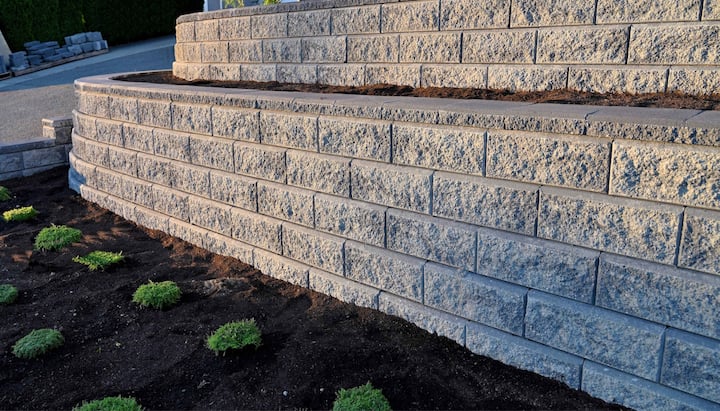
Concrete Solutions for Lasting Foundations
Building a strong future starts from the ground up, and with concrete, you’re investing in a foundation that’s built to last. Whether you’re a homeowner planning a new patio, a contractor managing a large-scale construction project, or a business owner looking for durable flooring, understanding the versatility and strength of concrete is essential. We offer insights and solutions to help you make informed decisions about your concrete needs.
The Enduring Appeal of Concrete
Concrete has been a staple in construction for centuries, and its popularity continues to grow. Why? Because it provides an unmatched combination of durability, affordability, and design flexibility. From supporting skyscrapers to forming intricate architectural details, concrete adapts to a wide range of applications. Its ability to withstand extreme weather, resist fire, and provide a stable base makes it the material of choice for countless projects around the globe.
Benefits of Choosing Concrete
- Durability: Concrete structures stand the test of time, resisting wear and tear from the elements.
- Versatility: Concrete can be molded into any shape, making it ideal for custom designs and unique architectural features.
- Affordability: Compared to other building materials, concrete offers a cost-effective solution without compromising on quality or longevity.
- Sustainability: Concrete can be made with recycled materials, reducing its environmental impact and promoting sustainable construction practices.
Applications of Concrete
The applications of concrete are virtually limitless. Here are just a few examples of how concrete can be used to enhance your property or project:
Residential
- Driveways and walkways
- Patios and outdoor living spaces
- Foundations and structural supports
- Decorative concrete elements
Commercial
- Flooring and pavement
- Walls and structural components
- Parking lots and loading docks
- Industrial applications requiring high durability
Concrete: An Environmentally Conscious Choice
In today’s world, sustainability is more important than ever. Concrete can be an environmentally responsible choice for your construction needs. By using recycled aggregates and supplementary cementitious materials, such as fly ash and slag, the carbon footprint of concrete can be significantly reduced. Furthermore, the thermal mass properties of concrete help to regulate indoor temperatures, reducing energy consumption and lowering utility bills. Choosing concrete aligns with green building practices and contributes to a more sustainable future. Proper mixing ratios are crucial for both durability and environmental impact.
Ensuring Quality Concrete Work
To maximize the benefits of concrete, it’s essential to work with experienced professionals who understand the nuances of concrete mixing, pouring, and finishing. Proper site preparation, accurate mixing ratios, and careful curing techniques are all critical to achieving a strong and long-lasting concrete structure. Whether you’re pouring a simple patio or constructing a complex foundation, partnering with qualified concrete contractors ensures that your project is completed to the highest standards.
The Future of Concrete
Innovation in concrete technology continues to advance, with new developments focused on enhancing its strength, durability, and sustainability. Self-healing concrete, which uses bacteria to repair cracks, and pervious concrete, which allows water to drain through it, are just two examples of the exciting possibilities on the horizon. As research and development efforts progress, concrete will continue to evolve, offering even more versatile and environmentally friendly solutions for the construction industry.
Conclusion
Concrete is more than just a building material; it’s an investment in the future. Its unmatched durability, versatility, and affordability make it the ideal choice for a wide range of applications. By understanding the benefits of concrete and working with skilled professionals, you can create structures that stand the test of time while minimizing your environmental impact. Explore the possibilities of concrete and build a foundation for lasting success. With proper application and maintenance, concrete is a worthwhile investment.
Durable Foundations: Mastering Concrete for Lasting Structures
Concrete is the backbone of modern construction, providing the strength and stability required for a wide array of projects. Understanding the nuances of concrete, from its basic composition to advanced applications, is essential for anyone involved in building and infrastructure development. Whether you’re a seasoned contractor or a DIY enthusiast, this guide provides key insights into achieving durable and reliable concrete structures.
The Composition of Concrete: Key Ingredients
Concrete is more than just a simple mixture; it’s a carefully balanced blend of several key components:
- Cement: The binding agent that hardens and adheres the aggregate materials together. Portland cement is the most common type used in construction.
- Aggregates: These include sand, gravel, and crushed stone, which provide bulk and strength to the concrete mix.
- Water: Necessary for the chemical process of hydration, where cement reacts and binds the aggregates.
- Admixtures: Optional additives that can modify the properties of concrete, such as workability, durability, and setting time.
Understanding Concrete Mixes and Ratios
The quality and performance of concrete depend heavily on the correct proportions of its ingredients. Mix ratios are typically expressed as cement:sand:aggregate. For example, a 1:2:4 mix is commonly used for general construction purposes. The water-cement ratio is also critical; too much water weakens the concrete, while too little can make it unworkable. Achieving the right balance ensures optimal strength and longevity.
Preparing Your Site for Concrete Pouring
Proper site preparation is crucial for a successful concrete project. Here are the key steps:
- Excavation: Remove any topsoil, vegetation, and debris from the area to be poured.
- Compaction: Compact the subgrade soil to provide a stable base for the concrete. This prevents settling and cracking over time.
- Formwork: Construct sturdy forms to contain the concrete while it sets. Ensure the forms are properly aligned and braced to withstand the pressure of the wet concrete.
- Reinforcement: Install reinforcing steel (rebar) to enhance the tensile strength of the concrete. Position the rebar according to the project specifications.
Pouring and Finishing Concrete
The pouring and finishing stages are where the concrete takes shape. Here’s what you need to know:
- Pouring: Pour the concrete evenly into the forms, avoiding segregation of the mix. Use a vibrator to consolidate the concrete and eliminate air pockets.
- Screeding: Level the surface of the concrete with a screed board to achieve the desired height and slope.
- Floating: Use a float to embed the large aggregates and create a smooth surface.
- Edging and Jointing: Create clean edges and control joints to prevent random cracking.
- Troweling: Trowel the surface for a hard, dense finish. This step is particularly important for surfaces that will experience heavy wear.
Curing Concrete: Ensuring Strength and Durability
Curing is the process of maintaining adequate moisture and temperature in the concrete to allow it to hydrate properly. Proper curing is essential for achieving the desired strength and durability. Methods include:
- Water Curing: Keep the concrete surface wet by spraying it with water, ponding, or covering it with wet burlap.
- Membrane Curing: Apply a curing compound that seals the surface and prevents moisture loss.
Curing should continue for at least seven days, and longer in hot or dry conditions.
Maintaining Concrete Structures
Even the best concrete structures require maintenance to ensure long-term performance. Regular inspections can identify potential problems early. Sealing the concrete can protect it from water damage and staining. Repair any cracks or spalls promptly to prevent further deterioration. With proper care, concrete structures can last for decades.
Advanced Concrete Techniques
Beyond the basics, there are many advanced techniques to enhance the performance of concrete:
- Self-Consolidating Concrete (SCC): Flows easily into forms without vibration, ideal for complex shapes.
- Fiber-Reinforced Concrete: Contains fibers that improve crack resistance and impact strength.
- High-Performance Concrete (HPC): Designed for specific performance requirements, such as high strength or low permeability.
These advanced techniques can provide superior results for specialized applications.
By mastering the fundamentals of concrete and staying informed about advanced techniques, you can build durable, reliable structures that stand the test of time. Understanding the composition, preparation, pouring, curing, and maintenance aspects of concrete empowers you to achieve superior results in all your construction endeavors. Whether it’s a small home project or a large-scale infrastructure development, the principles of quality concrete construction remain the same. Adherence to these best practices ensures that your concrete structures will provide strength, stability, and longevity for years to come. Embrace the power of concrete and build with confidence.
This site is a free referral service to assist homeowners in connecting with local service contractors. All contractors are independent and this site does not warrant or guarantee any work performed. It is theresponsibility of the homeowner to verify that the hired contractor furnishes the necessary license and insurance required for the work being performed. Some reviews listed either on this website or on 3rd party listings are paid reviews. All persons depicted in a photo or video are actors or models and not contractors listed on this site.